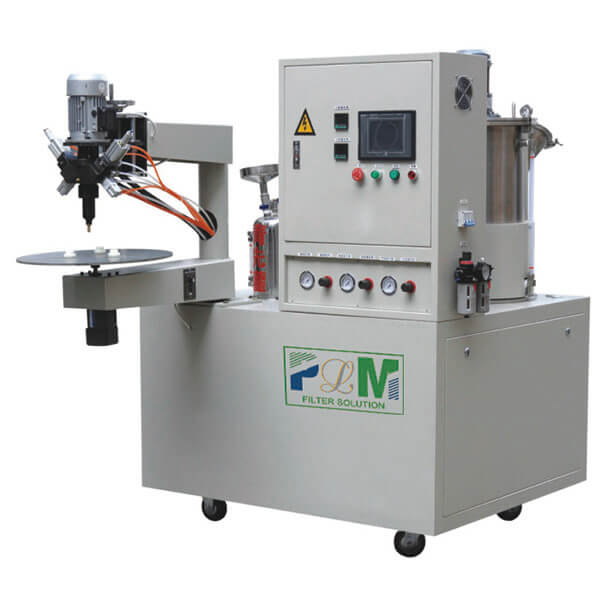Nov . 09, 2024 01:59 Back to list
Innovative Ceramic Vacuum Filter Machines for Efficient Industrial Filtration Solutions
Understanding the Ceramic Vacuum Filter Machine A Comprehensive Overview
In contemporary industrial applications, the demand for efficient separation processes has led to the development of advanced filtration technologies. Among these, the ceramic vacuum filter machine stands out for its effectiveness in separating solid and liquid phases in various industries, including mining, chemical, and wastewater treatment. This article provides a deep dive into the functionality, advantages, and applications of ceramic vacuum filter machines.
What is a Ceramic Vacuum Filter Machine?
A ceramic vacuum filter machine is a type of filtration equipment that utilizes ceramic filtering elements to separate solids from liquids through the application of vacuum pressure. The machine typically consists of several components, including a filter drum or disc made of ceramic material, a vacuum system, and a system for collecting filtered solids and liquids. The ceramic filter itself has a high porosity, allowing for superior filtration performance while maintaining structural integrity under high pressures.
How Does It Work?
The operation of a ceramic vacuum filter machine primarily involves the following steps
1. Feed Preparation The slurry containing solid particles and liquids is prepared and pumped into the filter.
2. Filtration Process A vacuum is created via a pump, drawing the slurry through the ceramic filter surface. The porous structure of the ceramic material allows liquid to pass while retaining solid particles on the surface.
3. Cake Formation As solid particles accumulate on the filter, a cake forms, which further enhances the filtration process by providing an additional layer for separation. This cake can be more porous than the original slurry, promoting efficient liquid flow.
4. Washing and Discharge After adequate cake formation, washing or rinsing may occur to remove impurities from the solids. Finally, the dewatered cake is discharged, while the filtrate is collected for further processing or disposal.
Key Advantages of Ceramic Vacuum Filter Machines
ceramic vacuum filter machine

1. High Efficiency Ceramic vacuum filters can achieve high levels of solid-liquid separation, making them ideal for industries requiring strict product purity.
2. Durability and Longevity The ceramic material used in these filters is highly resistant to wear and tear, chemicals, and high temperatures, resulting in longer service life and lower replacement costs.
3. Low Maintenance Compared to traditional filter media, ceramic filters require less frequent maintenance and less downtime, leading to lower operational costs.
4. Reduced Water Consumption The efficient design minimizes water usage during washing processes, making it an environmentally friendly option.
5. Versatility Ceramic vacuum filter machines can handle a wide range of materials, from fine powders to larger aggregates, making them suitable for diverse applications.
Applications Across Industries
Ceramic vacuum filter machines find applications in numerous sectors due to their effectiveness and efficiency in solid-liquid separation
- Mining and Minerals Used for concentrating ores, recovering valuable minerals, and in tailings management. - Chemical Process Industry Employed in the production of pigments, catalysts, and various chemical products. - Pharmaceuticals Ideal for filtering active ingredients, ensuring high purity levels necessary for pharmaceutical products. - Food and Beverage Applied in the clarification of juices and beverages, as well as in the production of dairy products. - Wastewater Treatment Utilized in municipal and industrial wastewater treatment plants for sludge dewatering and water recovery.
Conclusion
The ceramic vacuum filter machine represents a significant advancement in filtration technology, offering a combination of efficiency, durability, and versatility. Its ability to perform high-quality solid-liquid separation makes it a crucial component in various industries, addressing the growing need for sustainable and efficient processing methods. As industries continue to innovate and optimize their processes, the use of ceramic vacuum filter machines is expected to expand, contributing to improved operational efficiencies and product quality across multiple sectors.
-
Active Carbon Air Filter for Air Purifier – High Efficiency Filtration Solution
NewsJul.22,2025
-
Durable Sintered Porous Metal Filter Tube Cup & Machines
NewsJul.22,2025
-
Effective Active Carbon Air Filter for Purifiers | Eliminate Odors
NewsJul.21,2025
-
PLJT-250-25 Full-auto Turntable Clipping Machine | Efficient Automation
NewsJul.20,2025
-
Cheap PLJY109-500 Full-Auto HDAF Expanded Mesh Spiral Coiling Machine - High Efficiency & Quality Manufacturer
NewsJul.08,2025
-
Best PLHJ-6 Full-Auto Eco Filter Rotary Heat Plating Machine - High Efficiency & Eco-Friendly Solution
NewsJul.08,2025
